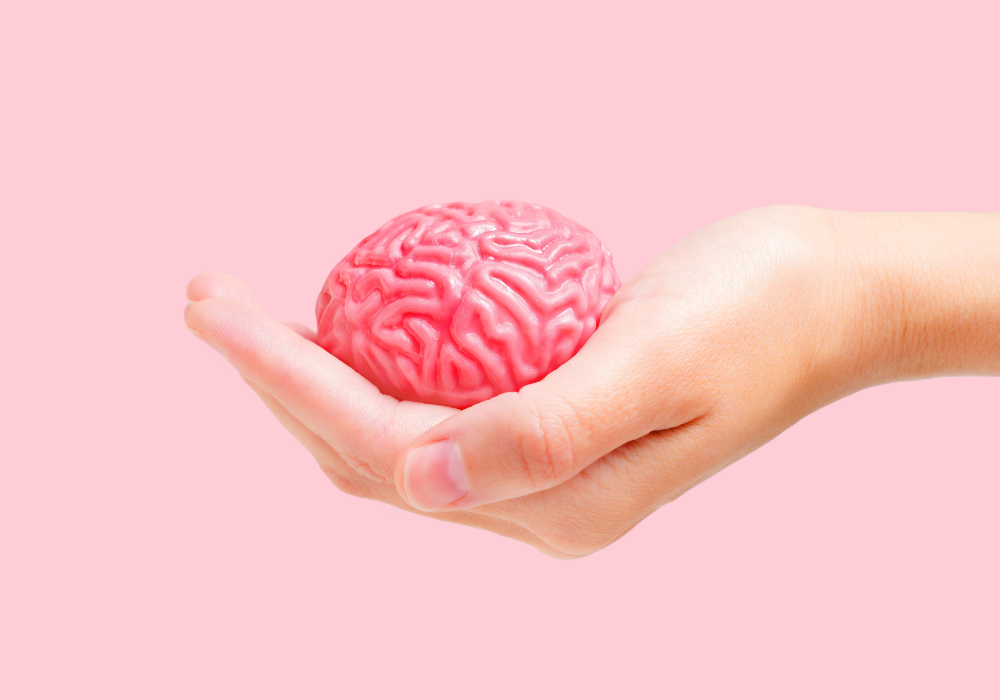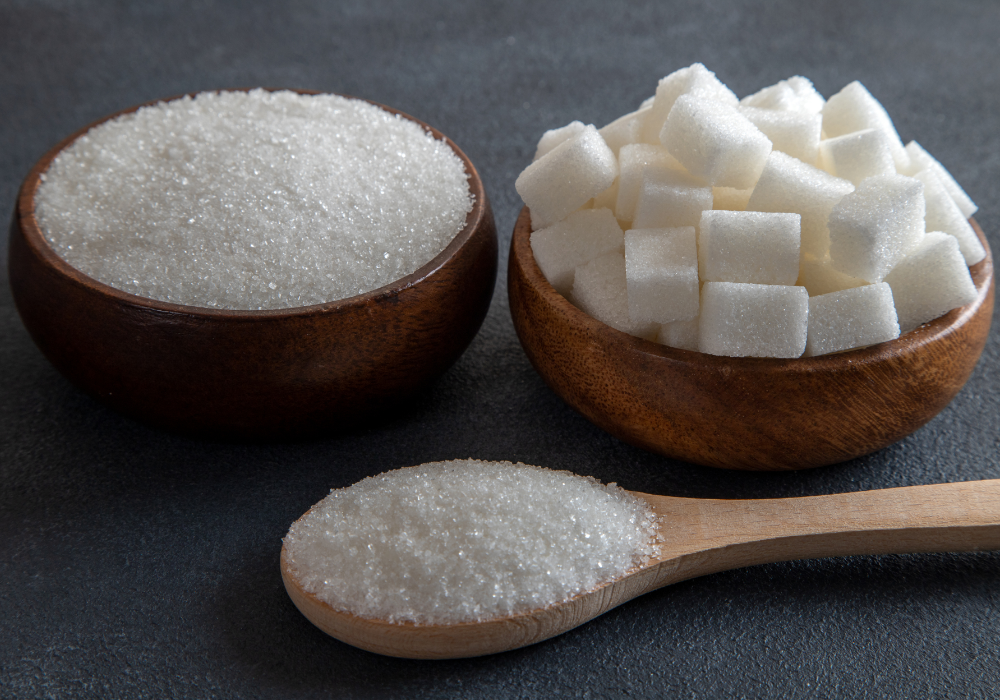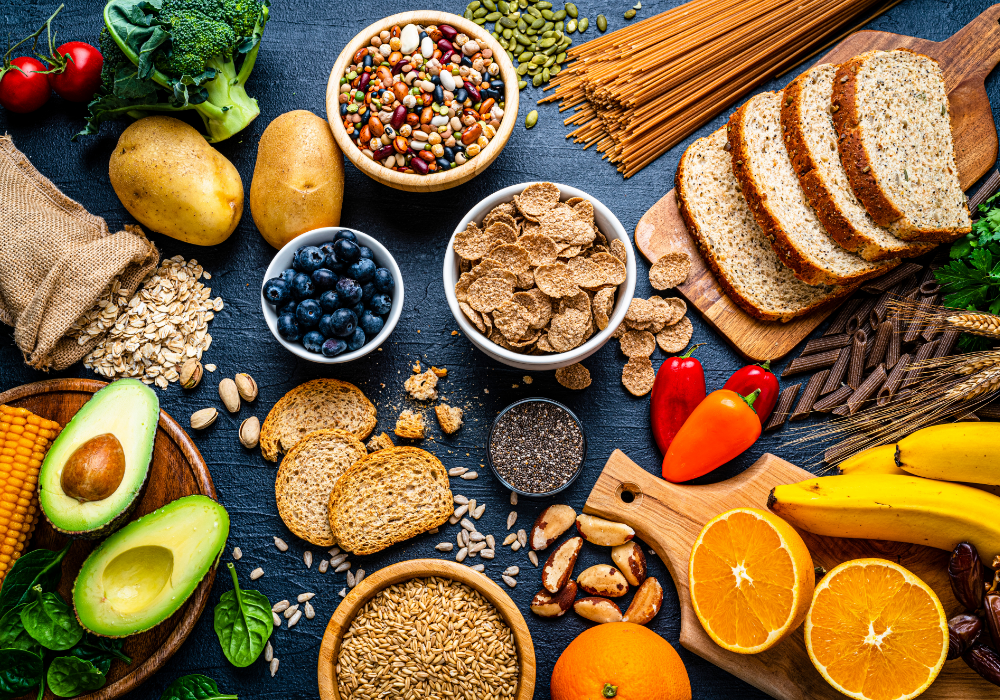Feeling anxious or depressed? Your gut could be the real culprit.

Mood swings, stress, and emotional crashes often start in the gut before they ever reach the brain. The gut microbiome, home to trillions of bacteria, plays a critical role in producing neurotransmitters like serotonin and dopamine that regulate mood, energy, and stress levels. An imbalanced gut can lead to brain fog, irritability, and even symptoms of anxiety and depression.
Around 90% of serotonin is produced in the gut, making digestion a key player in mental well-being. When gut bacteria are thriving, they help maintain emotional stability, reduce inflammation, and improve resilience to stress. Processed foods, poor sleep, and chronic stress disrupt this delicate balance, leading to digestive issues that directly impact mood.
Science is proving that gut health is the missing piece in mental wellness. Restoring balance in the digestive system can lead to lasting improvements in mood, energy, and overall emotional resilience.
1. The gut, not the brain, is calling the shots on serotonin production.

Most people assume that happiness starts in the brain, but the gut is actually running the show. According to Natalie Terry for the National Library of Medicine, Around 90% of serotonin—the neurotransmitter that helps regulate mood, sleep, and overall well-being—is produced in the gut, not in your head. If your digestive system is off-balance, your mood could be, too.
When gut bacteria are thriving, they keep serotonin levels steady, helping you feel more positive, less anxious, and more emotionally stable. But if gut health takes a hit—thanks to stress, antibiotics, or a bad diet—serotonin production drops, leading to mood swings, low energy, and a general case of the blahs. Keeping your gut happy with fiber, probiotics, and whole foods is one of the easiest ways to boost your mood naturally.
2. The gut and brain are basically texting all day long.

Ever had a “gut feeling” about something? That’s because your gut and brain are constantly chatting through the vagus nerve, a direct connection that influences everything from digestion to emotions. Research published by Zixaun Guo and others for Translational Psychiatry highlights that disruptions in this gut-brain axis are linked to mood disorders, including anxiety and depression. When your gut is inflamed or off-balance, it sends distress signals to your brain, which can lead to stress, anxiety, and brain fog.
On the flip side, a healthy gut sends “all good” messages, keeping you calm, focused, and emotionally steady. The easiest way to keep this gut-brain connection strong is by eating probiotic-rich foods, reducing stress, and cutting back on processed junk. When your gut is thriving, your brain is, too—so give it what it needs to keep the conversation positive.
3. A messed-up gut can quietly sabotage your mood.

When the gut lining gets damaged (a condition known as “leaky gut”), toxins sneak into the bloodstream and cause inflammation throughout the body—including the brain. This inflammation has been associated with anxiety, depression, and cognitive challenges, as discussed by Ahmed Eltokhi for Frontiers in Neuroscience.
Certain foods—especially processed junk and excess sugar—make gut inflammation worse, leading to mood swings and low energy. The good news? Healing the gut with anti-inflammatory foods like leafy greens, turmeric, and omega-3-rich fish can help restore balance. A happier gut means a clearer mind, steadier emotions, and fewer unexpected mood crashes.
4. Processed food and sugar are the ultimate gut villains.

That sugary snack might taste great in the moment, but it could be setting you up for a gut disaster later. Processed foods and refined sugar feed the bad bacteria in your gut while starving the good guys that keep digestion and mood in check.
Over time, this gut imbalance can increase stress, trigger inflammation, and even contribute to depression. Cutting back on processed junk and swapping in more whole foods helps rebalance the gut, leading to fewer mood crashes and more stable energy levels. If your emotions feel like a rollercoaster, your gut bacteria might be begging for better fuel.
5. Probiotics are like little mood-boosting superheroes.

Good gut bacteria do a lot more than help with digestion—they also play a major role in mental health. Certain probiotic strains, like Lactobacillus and Bifidobacterium, have been shown to lower cortisol (your main stress hormone) and boost serotonin and dopamine levels.
Adding probiotic-rich foods like yogurt, kimchi, and sauerkraut to your diet can help restore gut balance and improve emotional stability. When your gut is loaded with good bacteria, it’s easier to handle stress, avoid emotional crashes, and stay in a better mood overall. If food isn’t cutting it, a high-quality probiotic supplement might give your gut the support it needs.
6. Fiber is the best thing you can feed your gut (and your brain).

Gut bacteria need food, too, and fiber is their favorite snack. When fiber reaches the colon, good bacteria break it down into short-chain fatty acids (SCFAs), which reduce inflammation and support brain function.
If your diet is low in fiber, your gut bacteria struggle—and that can impact mood and stress levels. Oats, beans, lentils, bananas, and leafy greens act as natural prebiotics, feeding the good bacteria and keeping your gut microbiome balanced. Research shows that high-fiber diets are linked to lower rates of depression and anxiety. Think of fiber as brain fuel—it helps keep everything running smoothly, so you feel more energized, focused, and emotionally steady.
7. Stress and gut health are locked in a toxic relationship.

Feeling stressed out? Your gut probably is, too. Chronic stress floods the body with cortisol, which weakens gut bacteria, slows digestion, and increases inflammation. This can lead to bloating, stomach discomfort, and an even worse stress response—creating a vicious cycle where stress and gut issues feed off each other. The good news is that managing stress helps both your gut and your mood. Meditation, deep breathing, and yoga all lower cortisol levels, giving your gut bacteria a chance to recover.
Regular exercise also helps stimulate digestion and support beneficial microbes. Taking care of stress isn’t just about feeling better mentally—it’s about keeping your gut happy, too.
8. Poor sleep is wrecking your gut (and your mood).

A bad night’s sleep doesn’t just leave you feeling exhausted—it also throws your gut bacteria off balance. Research shows that people who don’t get enough sleep tend to have less diverse gut microbiomes, which can lead to more inflammation, stress, and even symptoms of depression.
Getting high-quality sleep is one of the best things you can do for your gut health. Sticking to a consistent bedtime, limiting screen time before bed, and avoiding heavy meals late at night can help improve sleep quality. When your gut is well-rested, your mood is better, your stress levels drop, and your digestion runs more smoothly. A happy gut starts with a good night’s sleep.
9. Exercise isn’t just for your body—it’s a gut booster, too.

Moving your body does way more than burn calories and build muscle—it actually helps keep your gut bacteria happy and thriving. Regular exercise increases microbial diversity, which is linked to better digestion, a stronger immune system, and, yes, improved mood.
Workouts, especially cardio and strength training, help reduce stress hormones like cortisol while boosting serotonin and dopamine production. This creates a powerful feedback loop—exercise improves gut health, which then improves brain health, which makes it easier to stay motivated and keep moving. Even a daily walk or some light stretching can have gut-friendly benefits. A healthy gut loves movement, and when your gut is happy, so are you.
10. Dehydration is messing with your digestion and your mood.

Drinking enough water is one of the simplest things you can do to support gut health, yet so many people don’t get enough. When you’re dehydrated, digestion slows down, gut bacteria struggle, and bloating and constipation become more common—all of which can leave you feeling sluggish and irritable.
Water helps move fiber through the digestive tract, keeping things running smoothly. It also supports the mucosal lining of the intestines, which plays a key role in keeping inflammation low and gut bacteria balanced.
Staying hydrated throughout the day improves digestion, boosts energy, and helps keep mood swings at bay. Your gut (and brain) will thank you for every sip.
11. Artificial sweeteners might be fooling your taste buds, but they’re messing with your gut.

Swapping sugar for artificial sweeteners might seem like a smart move, but your gut bacteria strongly disagree. Research shows that artificial sweeteners like aspartame, sucralose, and saccharin can alter gut microbiota, leading to imbalances that increase inflammation, digestive issues, and even anxiety.
Even though these sweeteners contain zero calories, they can still trigger metabolic changes that negatively affect gut bacteria. Some studies suggest they may even contribute to sugar cravings and make it harder to maintain a stable mood. Cutting back on artificial sweeteners and opting for natural alternatives like honey, maple syrup, or monk fruit can help keep your gut microbiome in better shape. A balanced gut is worth the extra effort to rethink that sugar substitute.
12. Nature is the ultimate mood-boosting gut healer.

Spending time outside is like hitting a reset button for both your gut and your mind. Fresh air, sunshine, and exposure to natural environments have been shown to improve microbial diversity, which supports digestion, immunity, and emotional well-being.
Interacting with soil—through gardening, hiking, or simply walking barefoot on the ground—introduces beneficial microbes that can strengthen gut health. Sunlight helps regulate the body’s circadian rhythm, which in turn supports proper digestion and serotonin production. Getting outside regularly reduces stress, boosts happiness, and gives your gut bacteria a much-needed dose of the great outdoors. When in doubt, go outside—your gut will love you for it.